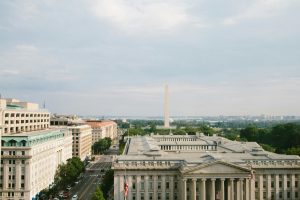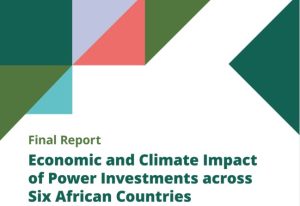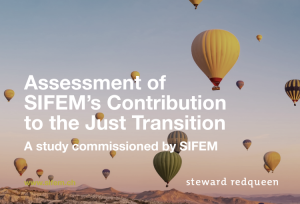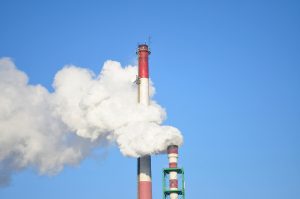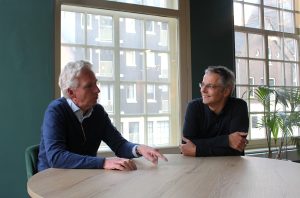Four Sustainability Consultants on Climate and Covid-19
Four Sustainability Consultants on Climate and Covid-19
Locked at home staring at the outside world from behind our windows (and screens), along with many others around the globe, one question has been on our minds: What will the current coronavirus crisis mean for climate change?
Part of what makes the question so interesting is not only the timeliness of it, but the varying perspectives it brings out, including within our own team, which is stimulating healthy debates and fun conversations about topics we are all passionate about.
In this blog, we summarize the perspectives of four people in our team and how they feel about the coronavirus crisis and climate change.
Beatriz: Change, and the collective activism that drives it, is harder than ever because of the crisis
At a time of deep uncertainty, Bob Dylan has found its way into my life again. I used to listen to Bob Dylan a lot when I was 16, the way you do when you are building a musical education and trying to be cool at the same time. Dylan sings about change, political change, all the time. The unprecedented times we live in have brought forward many questions, and the consensus seems to be that we cannot go back to ‘normal’. In other words, change will come.
I think these discussions are important and necessary exercises and I enjoy reading them, but I can’t shake off this feeling that all of this is happening in a vacuum. A vacuum of zoom squares with blurry faces and backgrounds. Conversations over beers in a bar have been exchanged for awkward zoom dates (and whoever tells you that calling a group of more than 5 people on zoom is not awkward is lying). All protests have been cancelled, and volunteering opportunities and community work is on standby. All these things that make us feel part of a society, that, from my experience, invite discussion and change perspectives, are gone for the foreseeable future. The defining narrative to come out of all of this is still to be defined, perhaps only decades from now, but the foundations that we lay out now matter. So, I guess what I am saying is, ‘bring on the zoom protests’.
Max: Although the opportunities for change are huge, and the temporary environmental benefits of a retreat in human activity are promising, the economic toll resulting from the crisis is heartbreaking
An unexpected outcome of the covid-19 pandemic has been a sudden, if temporary, reversal in planetary fortunes. And it’s happening at a pivotal time: global emissions rose in 2019 according to the UNFCCC, putting the world further away from achieving the goals defined in the 2015 Paris Agreement.
To me it’ clearer than ever that continued economic growth as normal and addressing climate change are diametrically opposing forces. But my concern is that if economic contraction is necessary for environmental progress, then what good are the marginal gains that we fight for in sustainability? Suddenly it feels it doesn’t matter how many people adopt plant-based diets, or businesses promise to reduce their emissions, or cities say they’re becoming circular. Climate change won’t die from a thousand little sustainability shaped paper cuts, and I’m not sure pain of economic contraction is worth making such a dent.
So I hope that one day we return to some form of economic growth in the future, warts and all. The climate crisis is critical, I know. Fires, hurricanes, droughts, it’s all happening already and economic growth makes it worse, like a smoker who knows it’s bad for him but loves having the pause to break up the monotony of work, I’m addicted to the blissfulness.
Silvia: Current crisis presents an opportunity to reimagine a new climate-friendly economy
The current crisis, which novelist A. Roy describes as a “portal, a gateway between this world and the next” might be a chance to start building a bridge between the short-term needs of today and the distant problems of tomorrow. But looking through this portal, weak spots in the current system have emerged that are starting to be seriously questioned.
The observed benefits of COVID-19 on climate, such as the clearer skies in usually polluted metropolis, are obviously only the short-term effects. In reality, the fact that the current crisis is forcing organizations’ leaders to stop and consider deeply -rooted issues that are critical to mankind is probably the most powerful agent for change that we should look to for hope.
Realizing that the effects of this crisis are universal should be an eye-opener even for those who up until now considered ethical issues an insufficient driver of change: the risk climate change poses has become impossible to neglect. Environmental issues will become extremely tangible for many private sector players that have so far only been considering emissions, water scarcity and waste management as marginal issues.
With the high degree of uncertainty of a completely shut down economic system, mitigation of carbon emissions is challenging to prioritize. Investments in renewable energy are drying up and energy efficiency of buildings will reasonably not be on top of organization’s and governments’ agendas in the coming months. However, designing forward-looking adaptation strategies is what organizations should be doing now. Not only to survive the current crisis but also to prepare for the next ones.
Sybren: People came together more than expected during the covid-19 crisis; hopefully the same holds true for climate change
In response to the crisis, we have seen the emergence of many acts of unusual kindness and generosity. Interestingly, there is a similarity between the covid-19 crisis and climate change disasters. After record-breaking wildfires, unusually frequent tornados and terrible drought forcing entire communities to leave their houses, people tend to come together and rebuild. The acts of kindness are beautiful and our collective action seems to indeed flatten the curve, but we should not scare away of thinking about the underlying issues: How certain lifestyles and our growing population that continues to shorten the distance between humans and wildlife can be linked to increased changes of a pandemic.
The same holds for climate change disasters. A few months back, the news was filled with stories about the exceptional wildfires wreaking havoc in Australia. There were many acts of kindness. People came together to help each other out, to rebuild the community, hoping normality would be restored soon. We seek common ground and at the same time actively suppress a divisive issue such as climate change.
Let’s try not to solely rely on our coping mechanism, but to also think about, openly discuss and tackle the underlying issues to global crises. So that eventually, acts of kindness can arise from a place of peace, and not disaster.




